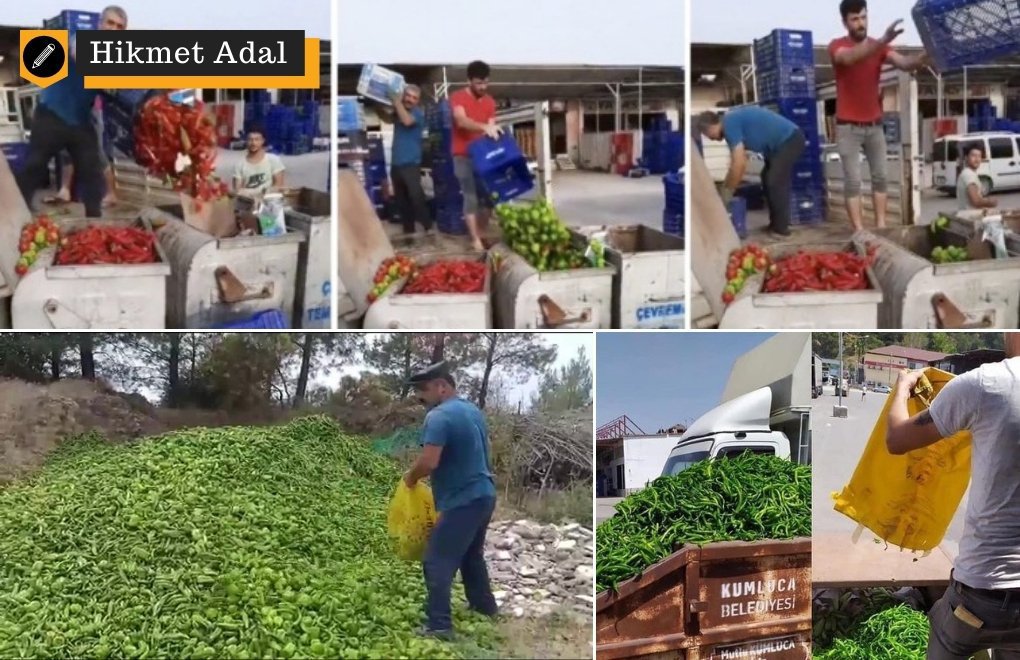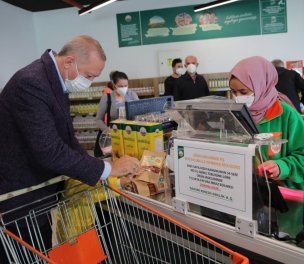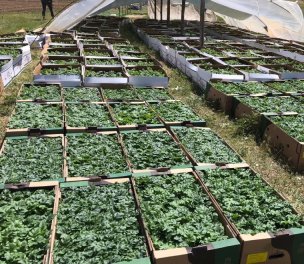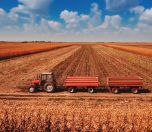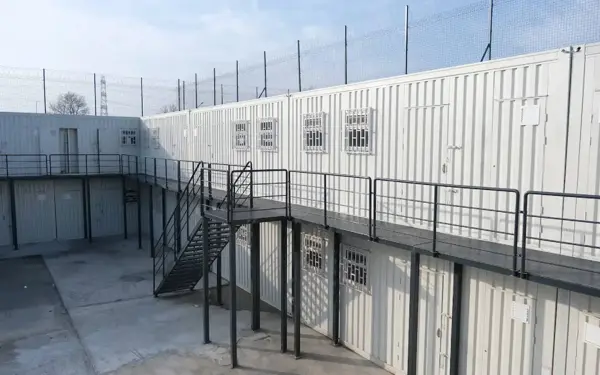Videos circulating on social media over the past week show farmers dumping products.
Click to read the article in Turkish
In the first week of the 17-day lockdown, images coming from southern provinces, especially Antalya, were enough to explain the situation of the farmers.
With the closure of the neighborhood farmers' markets, many farmers who couldn't sell their crops were condemned to hunger and poverty and tried to make their voices heard, climbing on top of their trucks.
While farmers lashed out at the closure of market places while grocery stores remaining open, they were also angered by large grocery chains' desire to buy their products at very low prices. Videos circulating on social media show some farmers dumping cucumbers and peppers.
According to Çiftçi-Sen farmers' union Chair Ali Bülent Erdem, this situation can't be explained alone with the pandemic. According to Erdem, prices are suppressed by the state and big grocery chains in every harvest season. As a result, farmers can't sell their products at their worth.
"Farmers can't deliver products to customers"
Erdem says that farmers have already had a hard time for years due to the price pressure and the increase in input prices every year and the coronavirus pandemic has come on top of this hardship.
"Another problem arose for the farmers during the pandemic. Farmers can't deliver products to their customers. The images we see in Antalya today are due to the farmers' inability to deliver their crops to the customer. Because the neighborhood farmers' markets are closed. Therefore, wholesale market halls don't buy the product. The producers are forced to sell their crops to the chain stores, but they also cut prices, expecting the farmer to sell goods below cost. Farmers react to this situation and they dump their products, which they waited for to grow for a year.
"In this case, you can't say anything about the situation. To whom and where will they give the goods they bought while the neighborhood farmers' markets were closed? This is an obvious example of a lack of planning. Farmers are going through a difficult threshold during the pandemic."
"They called debt restructuring assistance'"
Saying that the farmers were not provided with financial support during the pandemic, Erdem notes that they haven't received any social assistance from the state. Restructuring farmers' debts was called assistance, he says.
"They kept giving loans to farmers. Farmers couldn't pay it, and they restructured [the debts] and gave loans again. But they increased the interest rates in each restructuring. I'm sure that no one is going to be able to pay their debts. Farmers can't make money, so how can they pay?
"Farmers' debt to banks alone has increased by 22 billion lira in the last year. Today they talk about figures like 137 billion. There are two million farmers in debt. Debt restructuring is no longer a problem for farmers. Land changes hands, and food is increasingly being taken over by few people.
"At least farmers should have been supported in such a period. The state had to provide a purchase guarantee. The state had to intervene in the market in a way that would prevent product prices from falling below their value. They should have prepared the conditions for farmers and agricultural workers to be able to work in healthier conditions, but they did nothing."
"Food triggers inflation"
Stating that even getting a permit for the curfew has turned into a torment for the farmers, Erdem explains that the farming certificate alone is not enough and that the state forces the producers to register in the Farmer Registration System. Erdem says, "If the farmer produces with local seeds, it doesn't make sense to be in this system," and continues:
"If farmers produce with local seeds, they can't benefit from the support of the state anyway. They have a certificate of farming, and they are registered by the Chamber of Agriculture, but can't go out.
"If you put all these experiences of the farmers one after another, you will see that it is not only the producer who is affected by this situation. This is a chain. The loss of the farmers today, the waste of their crops, triggers food inflation. The product which is sold for two TL in Antalya goes for fifteen TL in İstanbul. Farmers can't earn money so people consume more expensive vegetables and fruits.
"Farmers can't give money to their employees. When they can't earn money, their children and young people are forced to leave their villages. As young people leave their villages, more seasonal workers become needed. But since farmers can't earn money, they can't hire seasonal workers and drifts away from production."
Companies are becoming in control
With companies buying agricultural lands, very few people are becoming more in control of the food, Erdem notes and adds: "In other words, a process is created in which the entire process from production to marketing will be handed over to companies. And the pandemic has been a reason for this.
"All the decisions taken are against the small farmers and the villagers. The state tells the farmers either to leave their lands or become a corporation. If you can't do these, it says, become a part of a company with contract manufacturing. Farmers are increasingly forced to produce in hard conditions."





